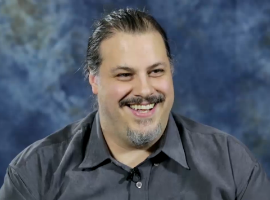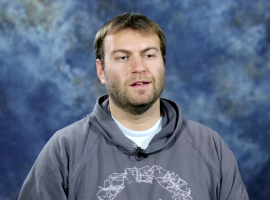InfoQ Homepage QCon Software Development Conference Content on InfoQ
-
Steve Peha on Agreements-Based Culture
Steve Peha describes how culture can derail a seemingly perfect Agile project. He then details how we can see and incrementally modify cultures by focusing on agreements. Agreements govern how we work together; they govern individuals and their interactions. By deliberately focusing on making, keeping, confronting, and renegotiating agreements, we can change our culture to support Agile teams.

-
Jakub Nesetril, CEO of Apiary on Web APIs and Developer Experience
Developer experience(DX) was one of the prime motivators for Web APIs in response to SOA. Now companies such as Apiary are focused on enhancing this experience and improving developer productivity by taking a page from the SOA book around automation through tooling. Jakub Nesetril explains the nuances of what constitutes good DX and how Web APIs need to be designed and implemented in this context.

-
Developer Evangelist Jon Gottfried on App Development with Twilio
Developer Evangelist Jon Gottfried of Twilio discusses the ins and outs of adding voice and SMS messages with Twilio's RESTful API. Learn about adding Twilio's telephony features like sending and receiving text messages to and from your mobile or web app.

-
Neal Ford on Giving Technical Presentations
Neal Ford shares tips and techniques he's learned from his experience on how to become a better presenter. He offers a number of strategies that can help you give good technical presentations and develop better slide decks.

-
Andrew Betts on Developing for Mobile with HTML5
Andrew Betts, founder of FT labs, discusses emerging trends in mobile development using web technologies, the benefits of developing for the web over building native, the difficulties of dealing with browsers and tooling.

-
Joshua Kerievsky on Anzen and Safety in Software
Joshua Kerievsky tells us about Anzen and his experience in taking the concept of safety from the manufacturing world and tailoring it to software development teams and organizations. By having ONE core value - safety - teams and organizations can keep from falling into the common pattern of practicing a superficial form of Agile and/or Lean development without getting any of the results.

-
Tom Dale on Ember and JavaScript Frameworks
Tom Dale, co-creator of the Ember JavaScript MVC framework, discusses the past, present and future of the framework. He also addresses the proliferation of JavaScript frameworks and libraries and how he deals with critics in the JavaScript community.

-
Demystifying Protocols and Serialization Performance with Todd Montgomery
Todd Montgomery talks about improving serialization times and throughput can by understanding how your computer processes and stores data. With this new understanding, architects and developers can build their own protocols to efficiently transmit data. Todd's advice sheds new light on why software developers choose their current serialization and marshaling techniques and how they can improve.

-
Christian Legnitto on the Mobile Release Process and Tooling at Facebook
Christian Legnitto describes FB's release process for mobile apps, how FB has no dedicated iOS or Android teams, A/B testing and the Play Beta program, tools used for the build process, and much more.

-
Machine Learning Netflix Style with Xavier Amatriain
Xavier Amatriain discusses how Netflix uses specialized roles, including that of the Data Scientist and Machine Learning Engineer, to deliver valuable data at the right time to Netflix' customer base through a mixture of offline, online, and nearline data processes. Xavier also discusses what it takes to become a Machine Learning Engineer and how to gain real experience in the field.

-
Keith Adams on PHP at Facebook, Efficient PHP with HHVM, Optional Typing with Hack
Keith Adams explains how/where/why Facebook uses PHP, PHP's benefits (lack of state/programmer workflow/concurrency), efficient PHP with HHVM, the Hack project for optional typing PHP and much more.

-
Martin Thompson Discusses Reactive System Design
Martin Thompson discusses the buidling of complex systems with regards to the Reactive Manifesto. Many web-based systems are built in a synchronous manner and that way of development may be their greatest barrier to scale and could greatly limit their production lifespan. Martin discusses these shortcomings and gives some advice on how to make systems truly reactive.
